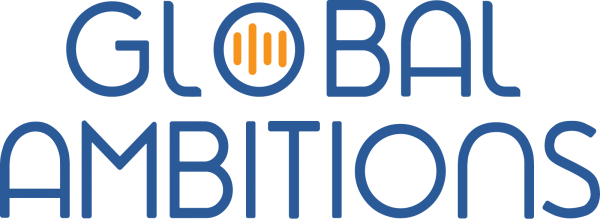With Anna Woodward, Founder and Managing Director of Chillistore
Below is a full transcript of this episode
Stephanie Harris
Hi, my name is Stephanie Harris and I’ll be your host today for this episode of Global Ambitions. Our guest today is Anna Woodward, who is the founder and managing director at Chilistore. Our topic today is quality and localization. Anna, welcome to the program.
Anna Woodward
Hi, Stephanie.
Stephanie Harris
Well, first of all, I hear that this month is Chilistore’s 10 year anniversary. So congratulations. Thank you. Maybe you could start by telling us a little bit about what the company does and how you founded it to address these sort of quality issues in the localization industry?
Anna Woodward
Sure. So my background is in localization for the past 25 years and half of it is dedicated to quality management and localization. So about 10 years ago, I was feeling a little frustrated about LQA, localization quality. And I co-founded this company. Chillistore is a company dedicated to content quality management, content creation, and international SEO.
Today, I say we are the translation agency that translates nothing because we don’t. We don’t create content. But yeah, mostly we are here for the LQA quality assurance of translated content. Some of us have an agile background, so the company was founded on the values of transparency, collaboration, flexibility, and we base our quality on the total quality management system applied to localization.
The difference, I think the difference that Chillistore has is we work directly with freelancers and we build a community of freelancers for our clients. We build a whole framework on quality that helps bring LQA as a plan, as a program for our clients. So the main reason for founding the company is really the frustration with seeing LQA as a task, as an inspection step in the localization workflow.
So LQA should be a program, a plan or a strategy. It’s not inspection. It’s very risk-prone to depend on inspection for your quality. So we wanted to really be able to bring LQA as a strategy to translated content.
Stephanie Harris
Yeah. Well, obviously you’ve been pretty successful. I’m sure you have lots of challenges that you have overcome in these past 10 years. What are the biggest issues that you faced with this topic of quality?
Anna Woodward
Yeah, the biggest issue is not because we founded a company that LQA magically became a strategy for anyone, so it was a bit of an uphill battle. So the biggest challenge is to bring LQA as a program, as a plan, as a strategy, not just as a step. This here is a review, a pass and fail scorecard at the end. So that was the biggest challenge.
One of the biggest challenges as well was the complete lack of transparency in the localization industry, where translation buyers don’t know who’s doing the actual work. So translators are not known. So bringing any type of plan, any type of feedback involving agents that you don’t know who they are was really, really challenging.
Stephanie Harris
Why do you think that people have been reluctant to be transparent in the industry in the past? What’s been the big roadblock there?
Anna Woodward
Yes, I think that this move towards seeing translation as a product, as a commodity meant that the service aspects of it went out the window a little bit. So to be able to be more or less cost-efficient, the service aspect of translation had to go out. So rather than you having project managers or vendor managers that have to deal with 100 freelance translators, it would be more effective for you to contract only 10 smaller single language providers. And those might even contract smaller, even agencies. So there is a lot of distance between now the LSP providing the translation and the person actually doing the translation.
Stephanie Harris
Mm-Hmm.
Anna Woodward
So the service aspect is out of it.
Stephanie Harris
And as you started looking at getting around these issues and going forward, I’m sure you had lots of ideas and lots of things that you wanted to try out. Is there anything that you would recommend that listeners? Say, stay away from this particular thing because that didn’t work out for us or anything that they should be mindful about if they want to try to have this more transparent process and strategy like you’ve been mentioning?
Anna Woodward
Yeah, so when we started it, it was pretty unchartered territory, so what we wanted to do was a bit ambitious. It wasn’t being done. So we did stumble across a lot of obstacles. We tried several approaches. And I think the biggest lesson after these colorful ten years is that you have an actual action-oriented plan.
So what happens a lot in terms of discussions around quality is that a lot of the discussions are around one step or one process or maybe the color of the scorecards or maybe who does this, rather than the quality itself. So you might waste one hour of your time discussing all of the aspects around the quality plan, but not discussing quality itself. So have an action-oriented plan. So there’s this problem. And what are we going to do next about this problem? So be mindful that the discussion is not oriented towards everything else around it.
The other thing that we have with all of our clients, we do not have a pass/fail strategy anymore. It’s a little bit of a dead-end because if you get a pass, even though your scorecard might have 20 issues, well, it’s a pass. Let’s not talk about this anymore.
Stephanie Harris
Yeah, yeah.
Anna Woodward
So right. So we have a bit more of a granular approach in terms of needs improvement and needs a bit more of this, and a bit less of that. So have a granular approach and ditch the pass or fail, if you can.
Stephanie Harris
It sounds like feedback is really the most important thing in this whole quality process, and doing that right is really the magic that will make your whole strategy, your whole system work. How do you do feedback in a way that actually works and people are receptive to, and you can improve that quality over time?
Anna Woodward
Yeah. Traditionally, the feedback on quality comes in spreadsheets. So here’s a file with my comment. People can get very bold comments, can get a bit disrespectful sometimes. And so the reply to that is not really good. There’s a myopic approach because usually, it’s feedback on this one single issue here and then feedback on this other issue here. It is not the best way to have feedback, really.
So and it leads to this arbitration thing, this arbitration phase. And then sometimes a client is pulled into this arbitration phase for a language that they know nothing about, and it’s very stressful for everybody.
So we have a language ownership framework in which, again, where we push for transparency, so we work directly with freelancers only. They’re transparent from day one. Our clients know who they are, can access them. We know who they are. We have a very long training and onboarding phase for these guys. So what we push for is that our reviewers are subject matter experts, meet directly with translators, and that this meeting is about language and that this meeting is in their own language and not supervised by a project manager or a client. Which will make everybody shy. And that they can discuss in a proactive way on an agenda based on what are the gaps that we see? What are the trends that we’re seeing? Rather than pointing fingers. This a mistake here. How dare you make this mistake? So it’s more about trends, it’s more about gaps, it’s more about what can we do to help? Or are you lacking any training? So face to face. To do face to face, you really need transparency. And that’s also a big gap to overcome. So there’s a period of overcoming this challenge of, you know, who exactly did this transition? Right?
Stephanie Harris
Yeah, yeah.
Anna Woodward
But you know what? We avoid completely this so-called arbitration phase. We don’t usually use this term. Everything is discussed in their language ownership meetings, and there is a continuous improvement mindset that comes out of that, which is completely the opposite of fighting or conflicts inside a scorecard, for instance.
Stephanie Harris
Right. This sort of people, people-first approach where you’re discussing things, sounds great. Have your clients seen a much faster improvement over time with their translation qualities? Or how has that actually played out?
Anna Woodward
They’ve seen an improvement. Yeah, and much faster, and an improvement that lasts for sure. Because traditionally what they were getting, they might get 50 scorecards. Half of them are pass, the other half is a fail. Then they give this to their translation vendors. And the translation vendors are equally surprised with a pass or a fail. They say, Oh, here’s a fail. Oh yeah, here’s a pass. Is it equally surprising because there’s no control, right? So if there’s no control, your result could be anything. So and then nothing much would change after that if there’s no control.
If you don’t know why that was a failed translation or poor scoring translation or why that was a good translation. You can’t improve if you don’t even know why was that good. What did you do well, in the first place? So what we establish is, end-to-end what should be in place? What are the best practices? And we start to uncover also, what did you do well here that, you know, this is a good translation.
So a lot of the time we also inform them of who the good translators are that they are employing. And yes, they do see not only an increase in the quality that they are registering, but they’re also in communication also in this continuous improvement mindset that starts to permeate everything.
So after a while, we can look not only at improving from failures to pass, but also training and onboarding. And what other services can we add here? What else can be done here? Can translations now be optimized for SEO? And the most exciting is once we reach this “good” is moving these translations, this content from “good” to “excellent”.
So how do we move to this space? From good to great, from good to excellent, a space where a reader cannot tell this is a translation anymore? This is so good or doesn’t even think there’s the translation behind that. It just sounds local. It just feels local, and it’s what delights a customer, right after all. So overall improvement usually. Yeah.
Stephanie Harris
Oh, that’s great. So here’s kind of my last question, but did you have any other advice of things that you’ve done that’s been really successful that you would recommend people duplicate?
Anna Woodward
Yes. So I think that’s the first thing that if you are listening to this because you’re starting a company or you are defining a new group or a team is defining what are your team values? So what are the values that define your culture? And I’ll be honest, here we have team values that are people values. So we don’t have an overall. “Our company has these values”. I don’t believe companies have values, people have values. So sit down and talk about what are the values defining the culture.
Because if you don’t define the culture, it is defined by the behaviors and the behaviors sometimes are not the best behaviors, right? So sit down and go through the values for everyone. See where they are challenging. So when we sit down to discuss values, we also discuss one of the challenges with these values because you can have very well-intentioned values and they might be very difficult to implement in real life. So I’d say, don’t let behavior define your culture. Have a think about it.
Stephanie Harris
Yeah. Wonderful. Well, it sounds like you have a lot of really good insights into this topic. I’m sure folks might want to learn a little bit more or have follow-up questions. Where can they go? Is there somewhere online that they can go to check out more of what Chillistore does and your insights?
Anna Woodward
Yeah, we have some very interesting, very nice posts on our blog page. So chillistore.com, find the blog. We talk a lot about quality, about LQAs, about values, and this month of February, we’re also launching a very long post about LQA strategy and LQA planning. What is LQA, after all, and why should you bother with it? Right.
Stephanie Harris
All right. Well, it’s been an absolute pleasure to have you on this show. So thank you so much for coming in.
Anna Woodward
Thank you so much, Stephanie. My pleasure.

Anna Woodward
Founder and Managing Director of Chillistore




